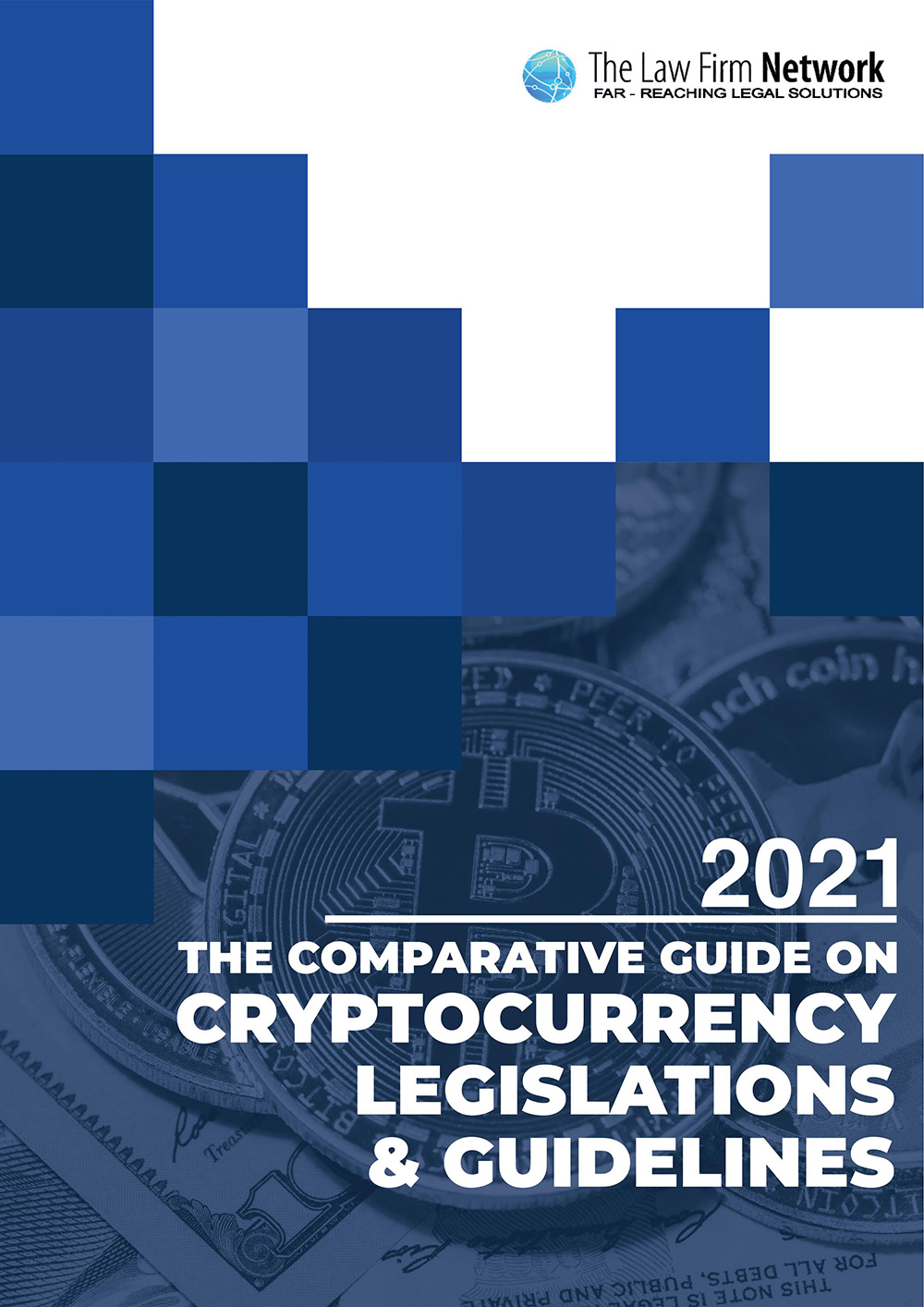
Which legislative and regulatory provisions, or any other guidelines or policies that govern or regulate cryptocurrency in your jurisdiction?
There are two types of virtual currency commonly known in Vietnam, in-game units which are used for making purchases in digital environments such as video games or contests, and cryptocurrencies. A third type is currently undergoing a pilot program and is a cash based digital payment which allows for non-banked individuals to deposit hard currency in their digital wallets. This chapter will limit its discussion to cryptocurrencies which made their market debut in Vietnam around 2017.
Vietnam currently does not have any law or regulation particularly governing cryptocurrencies. Guidelines for this section are scattered in several legal instruments, such as the Prime Minister’s directives (e.g., Directive 10[1]) and official letters / official dispatches of the State Bank of Vietnam (SBV), i.e. the central bank (e.g., Official Letter 5747[2]), and also can be implied from certain prevailing legal regulations (e.g., the regulations on non-cash payments, etc.).
Which legislative and regulatory provisions, or any other guidelines or policies that govern or regulate entities or operators that provide services relating to cryptocurrency? Must they be registered or licensed by any specific regulatory authority?
In general, the laws of Vietnam do not recognize cryptocurrencies as legal means of payment. And in fact, the Government has taken steps to prohibit its use in Vietnam. The central bank, the SBV, is the state organ responsible for governing the trade in currencies and payments and as such, any regulations governing cryptocurrency’s use, and all services related to its exchange, purchase or sale would fall under the SBV’s purview. As it is, the SBV has declared that “cryptocurrencies in general, and Bitcoin and/or Litecoin in particular, are not legal means of payment in accordance with the laws of Vietnam. The issuance, provision and use of cryptocurrencies in general, and Bitcoin and/or Litecoin in particular (illegal means of payment) as currencies or means of payment are prohibited conduct(s).”.
Despite this prohibition, Vietnam has been consistently ranked as one of the most active countries in cryptocurrency ownership. Possession of cryptocurrency is not prohibited, only its use as a means of payment within Vietnam. Therefore, investment in cryptocurrency is not prohibited. However, there are no regulations protecting investors in cryptocurrency or governing investment in the sector. The state has actually warned investors about potential risks when injecting money into cryptocurrencies.
Please describe which part or kind of services involving cryptocurrency that have yet to be governed or regulated.
Apart from being expressly prohibited from being used as a means of payment, the laws of Vietnam are currently silent on involving crypto in other fields. The Prime Minister has just announced as part of his five-year digital government strategy that he has assigned the SBV to study cryptocurrency with an eye to the possibility of adopting regulations for its use, but this recommendation was a single line item in a rather long document. For now, cryptocurrency is almost completely unregulated in Vietnam.
Which bodies are responsible for enforcing the applicable laws and regulations? What powers do they have?
As the regulator, the SBV performs the state management of banking and foreign currencies exchange activities. In addition, the SBV plays the role of a central bank issuing money, banking for credit institutions, and providing monetary services for the Government.
How does the government or authority in your jurisdiction treat cryptocurrency (legal treatment and general approach)?
The Government and state agencies do not recognize cryptocurrency as a legal means of payment, and its issuance, provision or use in Vietnam is subject to administrative penalties. If such issuance, provision or use causes damage exceeding 100 million VND (approx. USD4,338) then the individual responsible will also be liable to criminal penalties. However, the possession of cryptocurrency and its use by citizens beyond the borders of Vietnam are not prohibited. The SBV has repeatedly issued regulations preventing banks or credit institutions in Vietnam from allowing their facilities to be used in the purchase of cryptocurrency as the Government has viewed cryptocurrency as a likely means to conduct fraudulent or illegal transactions. As already mentioned, investment in the sector through mining farms or legal purchase and holding of cryptocurrency do not seem to be illegal, only unregulated and unprotected.
How is cryptocurrency legally defined in your jurisdiction? Have there been any judicial decisions which have helped to define them with the existing legislations or court precedents? (e.g. as a currency, commodity, property)
In 2014, the SBV defined Bitcoin as “a kind of digital currency (virtual currency) which is neither issued by the government nor a financial institution but is created and operated based on the systems of computer connected to peer-to-peer internet network”. This definition was stated in a press release and not an official regulation and there has been no further statements regarding how the SBV or the Government might define cryptocurrency.
How are different type of fundraising activity involving cryptocurrency defined in your jurisdiction? (i.e. Initial Coin Offering (ICO), Security Token Offering (STO), Initial Exchange Offering (IEO) & Stable Token)?
In 2020, the National Assembly, as the Vietnam’s legislative body, has adopted a new investment law. In that law, it sets out a list of sectors that are prohibited for investment and a list of sectors that are subject to conditions. Sectors not on either list are open to investment without conditions. While certain financial and credit related sectors are on the list of sectors subject to conditions, and cryptocurrency could be inferred to be included in some of those, cryptocurrency is on neither the list of sectors prohibited for investment nor those subject to conditions. In practice, no licensing authorities in Vietnam would issue an investment registration certificate to someone seeking to invest in cryptocurrency. This is the case despite the fact that investment in cryptocurrency is not technically illegal. For now, there are no formal mechanisms for investing in cryptocurrency recognized by the State.
Are cryptocurrencies trading platforms subject to a specific regulatory regime in your jurisdiction? Must they be registered or licensed by a regulatory authority? Upon being licensed are they allowed to accept legal currency?
Cryptocurrencies are not considered as either a legal form of payment in Vietnam, nor are they classified as a type of property[3]. As such, the establishment and/or operation of a trading platform or a crypto exchange for an asset which is not legally recognized, has yet to be permitted in the country.
What is the is the current approach in your jurisdiction to the treatment of cryptocurrency regarding money laundering and terrorist financing?
The SBV has been directed to instruct credit institutions and organizations providing intermediary payment services: (i) not to implement transactions related to cryptocurrencies, and (ii) enhance the examination and timely report of suspicious transactions related to cryptocurrencies. The SBV is also to cooperate with the Ministry of Public Security to detect and handle violations related to cryptocurrencies. Other Ministries (e.g., Ministry of Finance, Ministry of Public Security, Ministry of Justice, etc.) are also required to take corresponding actions in furtherance of monitoring transactions. This caution was recently extended further to include ATMs and bank card payment locations in relation to their use in payments for cryptocurrencies as they are deemed by the State to involve a high risk of money laundering or terrorist financing.
Is there any bill in process in your jurisdiction regarding cryptocurrency?
As mentioned earlier, in June this year, the Prime Minister issued his five-year strategy for digital government which includes a line item encouraging the SBV to study cryptocurrency on the blockchain and make recommendations regarding its possible adoption. We have also seen other reports regarding SBV committees formed to study cryptocurrency in the past two years, however, we have seen no evidence that these committees are actually conducting any activities nor issuing any reports to the public.
Is there any Law, Resolution or official guideline that regulate blockchain in your jurisdiction?
There are no particular regulations on blockchain. However, the Government seems to favour and encourage the application of blockchain technology. In a report presented to the Government in March 2020, the Ministry of Justice was researching and planning to complete the legal corridor in relation to applying and promoting products and services which are developed on blockchain-based platforms. The Prime Minister is also considering the implementation of a regulatory sandbox for certain FinTech including blockchains.
Are there any other key issues concerning cryptocurrency in your jurisdiction that legal practitioners should be aware of?
Aside from the potential administrative and criminal penalties for the issuance, provision, or use of cryptocurrencies, the Government is perhaps motivated in its prohibition of the technology by early fraudulent enterprises that abused the trust of the Vietnamese people. Vietnam was an early adopter of the technology and several cryptocurrencies proved to be scams. This prompted the initial prohibition of the technology and the Government has yet to see a reason to reverse this decision. Perhaps the new five-year strategy may be a sign that the Prime Minister is now willing to consider cryptocurrency as a potentially legitimate technology for future adoption. For now, however, it remains a largely offshore means for parking investments by Vietnamese citizens.
__________________
[1] Directive No. 10/CT-TTg of the Prime Minister dated 11 April 2018 on enhancing the management of Bitcoin and other cryptocurrencies-related activities.
[2] Official Letter No. 5747/NHNN-PC of the State Bank of Vietnam dated 21 July 2017.
[3] Under Article 105 of Law No. 91/2015/QH-13 dated 24 November 2015, the Civil Code, “property” is defined to comprises objects, money, valuable papers and property right. Property includes immovable property and movable property. Immovable property and movable property may be existing property or off-plan property.









